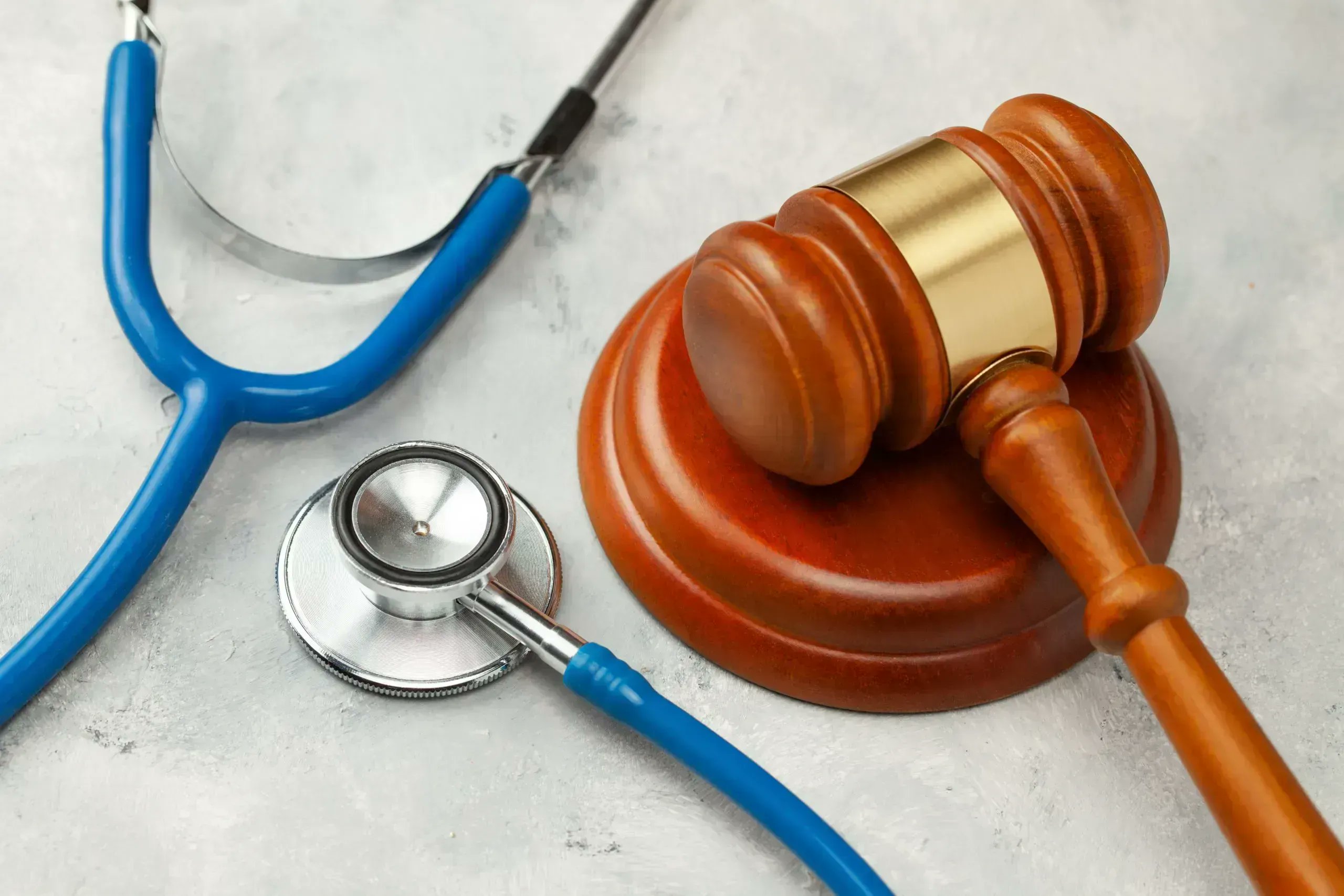
Medical malpractice occurs when the actions or omissions of a medical professional result in injury or illness. Medical malpractice can occur when a doctor is acting in a professional capacity, in the course of their employment (or self-employment). Patients who are victims of medical malpractice (also called clinical malpractice) have the legal right to seek compensation. Typically, this covers rehabilitation assistance, future care needs, and loss of income. If the patient is deceased or too ill to file a claim on their own, their family may be able to file a claim on their behalf.
Medical malpractice claims are not limited to surgical or medical errors and apply to a wide range of injuries, complications, and lack of informed consent. Our team of experts will guide you through the medical malpractice claim process to ensure that you receive the best possible outcome for your situation.At Carter Capner Legal, your well-being is our priority. We take care of all the paperwork for all medical malpractice compensation claims so you can focus on your recovery. If you need to speak to someone about medical malpractice, the compensation claims lawyers at Barisbane Legal are here to help.
Medical negligence lawyers are legal professionals who specialize in handling cases related to medical malpractice or medical negligence. Medical negligence occurs when a healthcare professional, such as a doctor, nurse, or hospital, fails to provide an appropriate standard of care to a patient, resulting in injury, harm, or even death.Here are some key aspects of the work of medical negligence lawyers:
Case Evaluation: Medical negligence lawyers assess the viability of potential medical malpractice cases. They review medical records, consult with medical experts, and determine whether there is sufficient evidence to pursue a claim.
Legal Representation: These lawyers represent clients who have been harmed due to medical negligence. They work to establish liability by demonstrating that the healthcare provider breached their duty of care, causing the patient's injuries or harm.
Gathering Evidence: Medical negligence lawyers gather relevant evidence, including medical records, expert opinions, and witness testimonies, to build a strong case. They may consult with medical experts who can evaluate the standard of care provided and testify on behalf of the injured party.
Negotiation and Settlement: In many cases, medical negligence claims are resolved through negotiation and settlement. Lawyers advocate for their clients and negotiate with insurance companies or legal representatives of the healthcare provider to secure a fair settlement that compensates the injured party for their damages.
medical negligence lawyers brisbane

Trial Representation: If a settlement cannot be reached, medical negligence lawyers may proceed to trial. They present the case before a judge and jury, cross-examine witnesses, and argue on behalf of their clients to seek a favorable outcome.
It's important to consult with a qualified medical negligence lawyer if you believe you or a loved one have been a victim of medical malpractice. These lawyers have expertise in the complex legal and medical aspects of such cases and can guide you through the legal process while fighting for your rights and seeking compensation for your losses.
A medical lawyer, also known as a healthcare attorney or medical malpractice lawyer, is a legal professional who specializes in the field of healthcare law. They handle legal matters related to medical practices, healthcare facilities, and the rights of patients. Medical lawyers often work in law firms or as in-house counsel for hospitals, healthcare organizations, insurance companies, or government agencies.
Here are some key areas in which medical lawyers typically provide legal services:
Medical Malpractice: Medical lawyers represent clients who have been harmed or injured due to the negligence or misconduct of healthcare professionals. They handle cases involving misdiagnosis, surgical errors, medication mistakes, birth injuries, and other medical negligence claims.
Regulatory Compliance: Medical lawyers help healthcare providers, hospitals, and other healthcare organizations navigate complex healthcare regulations and ensure compliance with laws such as the Health Insurance Portability and Accountability Act (HIPAA), Medicare and Medicaid regulations, and other state and federal healthcare laws.

Healthcare Contracts: Medical lawyers assist in drafting, reviewing, and negotiating contracts between healthcare providers, insurance companies, medical device manufacturers, pharmaceutical companies, and other healthcare entities. These contracts may include physician employment agreements, managed care contracts, research agreements, and vendor contracts. Healthcare Policies and Procedures: Medical lawyers help healthcare organizations develop and implement policies and procedures to ensure compliance with legal and ethical standards. They also provide guidance on issues such as patient privacy, informed consent, and end-of-life decisions.
Healthcare Litigation: Medical lawyers represent healthcare providers, hospitals, or patients in litigation matters related to healthcare disputes. This may involve defending healthcare providers against malpractice claims or advocating for patients' rights in cases of medical negligence or denial of medical treatment.
Health Information Privacy and Security: Medical lawyers advise healthcare providers and organizations on issues related to the privacy and security of patient health information, including compliance with HIPAA regulations, data breaches, and electronic health record (EHR) systems.
Medical Ethics and Research: Medical lawyers provide guidance on legal and ethical issues in medical research, including informed consent, protection of human subjects, and compliance with regulations governing clinical trials. It's important to note that the specific role and responsibilities of a medical lawyer may vary depending on their practice area, the jurisdiction they operate in, and the needs of their clients.
Medical negligence solicitors, also known as medical malpractice lawyers, are legal professionals who specialize in handling cases related to medical negligence or medical malpractice. They provide legal representation and advice to individuals who have suffered harm or injury due to substandard medical care or medical errors. Here are some key responsibilities and services provided by medical negligence solicitors: . Case evaluation: Medical negligence solicitors assess the details of a client's case to determine if there are grounds for a medical negligence claim. They review medical records, consult with medical experts, and analyze the circumstances surrounding the alleged negligence. Legal advice: Solicitors provide expert legal advice to clients regarding their rights, options, and the potential outcomes of pursuing a medical negligence claim. They explain the legal process and help clients understand the complexities of medical malpractice law. Gathering evidence: Medical negligence solicitors gather evidence to support their clients' claims. This may include obtaining medical records, consulting with expert witnesses, and collecting testimonies from relevant parties. Negotiation and settlement: Solicitors negotiate with the opposing party, typically the healthcare provider or their insurance company, to reach a fair settlement on behalf of their clients. They advocate for their clients' rights and strive to secure maximum compensation for the harm suffered. Court representation: If a settlement cannot be reached, medical negligence solicitors represent their clients in court. They present the case, cross-examine witnesses, and argue on behalf of their clients to establish liability and seek appropriate compensation. Compensation claims: Medical negligence solicitors help clients pursue compensation for various damages resulting from medical negligence, such as medical expenses, loss of earnings, pain and suffering, rehabilitation costs, and future care needs. When seeking a medical negligence solicitor, it's important to find one with experience and expertise in handling medical malpractice cases. They should have a strong understanding of medical procedures, standards of care, and the legal framework surrounding medical negligence claims. Note: It's always advisable to consult with a qualified legal professional or solicitor to get accurate and up-to-date information tailored to your specific situation.
A negligence lawyer, also known as a personal injury lawyer or a tort lawyer, specializes in handling cases related to negligence. Negligence occurs when someone fails to exercise reasonable care, resulting in harm or injury to another person. A negligence lawyer represents individuals who have been injured or suffered damages due to the negligent actions of others. They help their clients pursue compensation for their injuries and other losses. Here are some key responsibilities of a negligence lawyer: Case Evaluation: A negligence lawyer evaluates the circumstances surrounding the incident to determine if there is a viable case. They examine the evidence, interview witnesses, and consult with experts, if necessary, to establish the negligence of the responsible party. Legal Representation: If the negligence lawyer believes there is a valid case, they will represent the injured party in negotiations or in court. They will prepare and file the necessary legal documents, handle communication with the opposing party or their insurance company, and advocate for their client's rights. Compensation Claims: Negligence lawyers work to secure compensation for their clients, which may include medical expenses, lost wages, pain and suffering, emotional distress, and other damages resulting from the negligence. They may negotiate settlements or take the case to trial if a fair resolution cannot be reached through negotiation. Legal Strategy and Litigation: Negligence lawyers develop a legal strategy based on the specific circumstances of each case. They gather evidence, interview witnesses, consult with experts, and build a strong argument to support their client's claim. If the case goes to trial, they present the case in court and advocate for their client's interests.